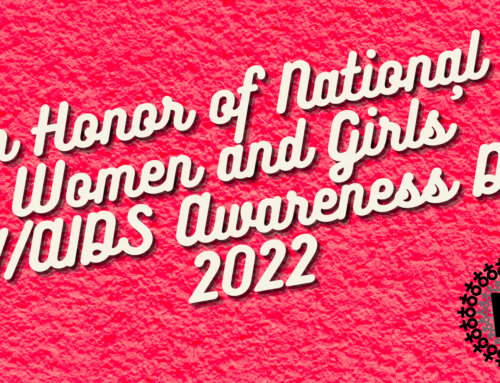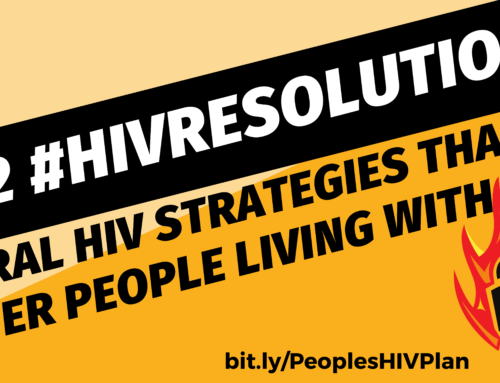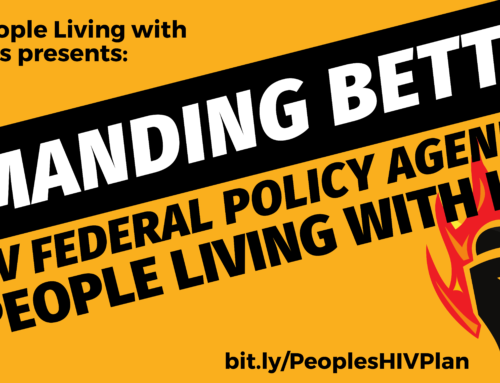By Positive Women’s Network-USA – June 5th, 2011 will mark 30 years since the first case of what now is called HIV was recorded in U.S. history. Since then, people living with HIV, advocates, allies, friends, and families have spoken up consistently.
We spoke up for our rights to quality and comprehensive health care, for the end of discrimination and injustice, and for access to affordable and life-saving medications.
We made progress to ensure that the human rights and dignity of people living with HIV are upheld. In the face of discrimination based on HIV status, President Obama lifted the U.S. HIV travel ban at the end of 2009 – a travel ban which unduly stigmatized and unnecessarily targeted people living with HIV. As a result of its lifting, the International AIDS Conference will return to the U.S. in Washington, D.C. next year following a 23-year absence.
Embracing science and evidence-based prevention is another marker of the progress we have made – by eliminating the federal ban on syringe exchange. Financing needle exchange programs and creating safe spaces for drug use creates safe choices for drug users – rather than violent realities. This is an affirmation of human rights.
We spoke up for the need for additional research on prevention, treatment, and care. The journey from AZT to Atripla is progress to be proud of, as people living with HIV can live full, productive, healthy, and vibrant lives. Women and families affected by HIV today can safely conceive and parent knowing they are likely to be healthy for years, with appropriate care and treatment. And advances in prevention research including Pre-exposure Prophylaxis (PrEP) and vaginal microbicides indicate promise that we may one day even have a truly female-controlled prevention option.
And, finally, we spoke up to the Obama Administration to push for healthcare reform and to launch the first U.S. National HIV/AIDS Strategy – a roadmap to address the domestic epidemic for the first time in our history. With the Strategy and the passage of the Affordable Care Act, we will have the ability to expand basic health coverage – and possibly even to assure quality care that is comprehensive, gender-sensitive, culturally relevant, and holistic. We have indeed made progress in the past 30 years.
Building on this progress, there is much more work to do to ensure the rights and dignity of people living with and vulnerable to HIV are upheld.. We must secure meaningful involvement of people living with HIV in all aspects of decision-making on HIV-related programs, services, and efforts. We must ensure comprehensive sexuality education is available to all people of all ages, gender identities, and sexual orientations. We must ensure that prevention campaigns do not stigmatize or marginalize people living with HIV or communities disproportionately impacted by the epidemic, and that quality, family-centered care inclusive of supportive services is available to all people living with HIV.
Positive Women’s Network looks forward to a future where women and girls are safe and everyone’s rights are upheld. We stand in sisterhood and solidarity with everyone committed to the fight.






